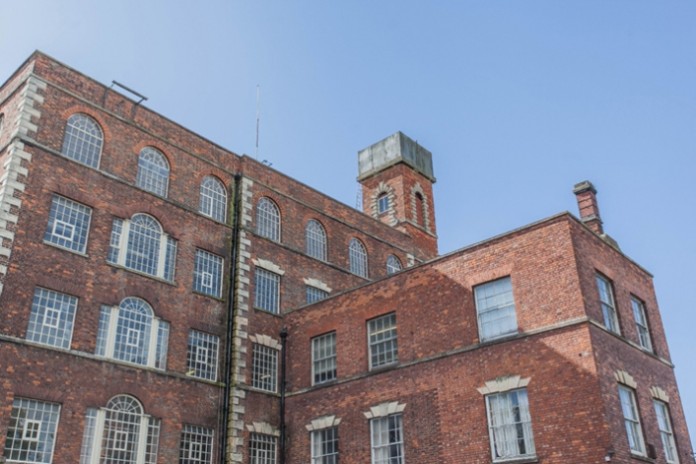Ambitious plans to regenerate Stanley Mill, the largely disused and partly derelict historic site near Stroud, Gloucestershire, are to go ahead after a seven-year delay.
Gloucestershire-based property entrepreneur Michael Chittenden, whose investments include Manor By the Lake in Cheltenham and the Royal Ordnance Depot in Northamptonshire, has acquired the 12-acre (4.8 hectare) site from Gladedale Special Projects.
The site contains a Grade I listed building and several Grade II buildings of national significance – all of which will be refurbished and incorporated in the regeneration plans.
Consent to develop the site was granted in 2010, and the new owner is planning to create up to 25,000 sq ft (2,300 sq m) of business space and 135 apartments and houses – 68 new build and 67 converted from existing buildings. The total value of the development, once completed, is estimated to be in excess of £30 million.
Work to relocate a current occupier, carpet company Marlings Ltd, into a new purpose-built factory on the site will begin shortly.
The main mill, dating back to 1813, will feature a large open commercial space at ground level with residential space above. Other homes will be arranged in courtyards, while six new timber-clad houses will be built on the banks of the millpond.
The site, which is fed by the southern arm of the River Frome, has been associated with the woollen trade since at least the early 16th century when waterpower converted local wool into a range of textiles. Waterpower was later replaced by steam and, eventually, electricity. New buildings were added over the years, including a number of nationally significant Grade II listed structures, with others dating up to post War.
Since production at the former textiles mill ended in 1980, some parts have fallen into disrepair, and a number of plans to redevelop the site have subsequently been submitted but never come to fruition. Stanley Mill has been placed on an “at risk” register by English Heritage, who say that the building has “the finest internal cast iron framing in the country”.
The new plans will lose some of the redundant modern buildings and make the very most of the stunning Georgian industrial architecture.
“We felt very strongly that in order to respect the site’s sensitive heritage, we needed to plan a lower number of higher quality residential units than was originally envisaged,” says Michael Chittenden. “It will also generate less traffic than previously approved schemes.
“New homes are badly needed locally, and the mix of apartments and houses planned will appeal to a wide range of buyers – from young professionals and families through to downsizers. The site is well located – just a few minutes from the M5 and close to all the amenities in Stonehouse, which has its own railway station, and Stroud.”
“We will be looking to work closely with the local planners, other local stakeholders and bodies including English Heritage who I know will be keen as I am to protect this hugely historic site while seeing it play a part in the area’s future.”



















